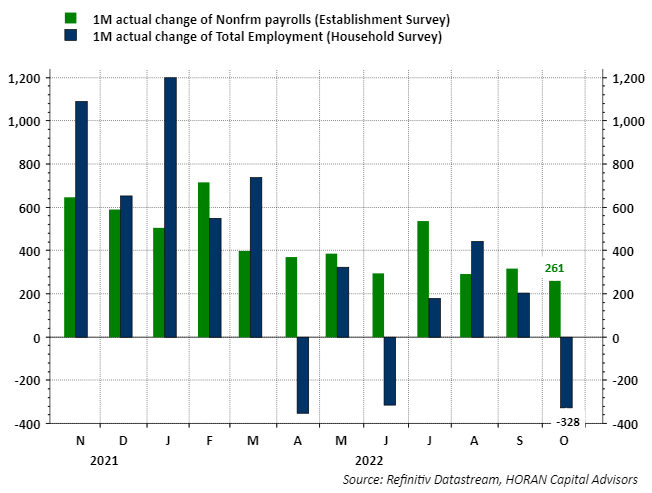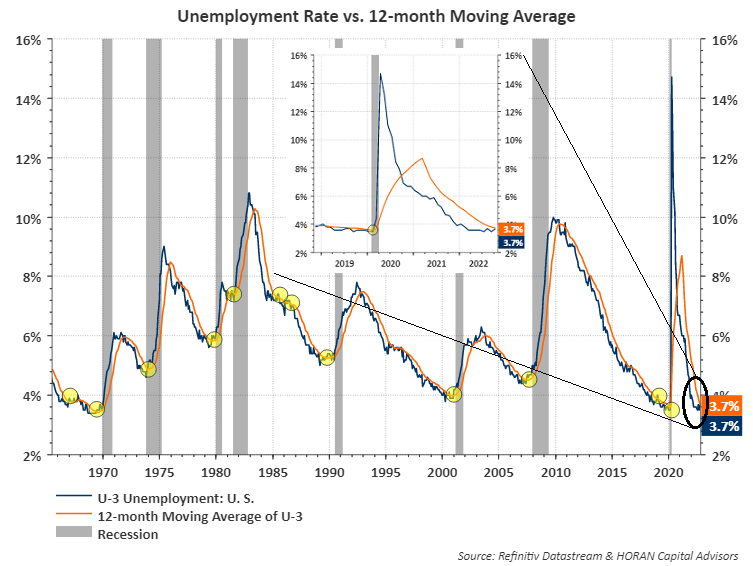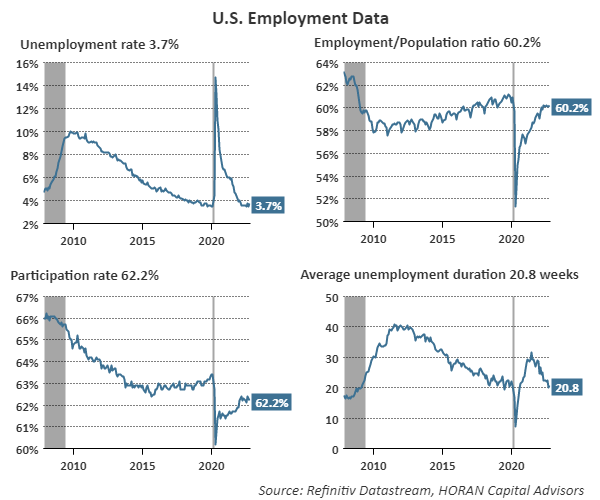Author: David I. Templeton, CFA, Principal and Portfolio Manager
This past week the Federal Reserve instituted another 75 basis point (.75%) Fed Funds rate hike, the fourth of this magnitude and the six hike this year. These rate hikes are an effort by the Fed to rein in inflation by making it more expensive to spend or finance purchases and more expensive for businesses to invest in its operations. Another consequence of attempting to reduce demand is the general level of employment in the economy likely declines. And to that point, last week's report on payrolls in the U.S. noted October nonfarm payrolls exceeded expectations and increased by 233 thousand. However, also included in the Employment Situation report is detail from the broader Household Survey and employment declined 328 thousand.
The Household Survey data is used to calculate some of the unemployment statistics including the unemployment rate, which rose to 3.7% from 3.5% in September. The below chart is one of several our firm evaluates to provide insight into the economy to determine whether it is slowing or the economy dipping into a recession. Broadly, if the unemployment level in the economy increases, this removes potential demand from the economy; hence, a slowdown or recession may unfold. As the chart shows, when the unemployment rate crosses above its 12-month moving average, this is one data point that has indicated a recession might be unfolding. Clearly, the unemployment rate is flattening and possibly beginning an uptrend with both the rate and average now equaling 3.7%.
Another data point from the Employment Situation report saw the participation rate decline to 62.2%, down from 62.3% in September and 62.4% in August. This is another indication the job market is weakening.
The current economic environment finds the demand side of the economy may be less of the issue versus the supply side. The pandemic disrupted the supply chain for many companies and shortages are a result. New car inventory remains low, diesel inventory is running low, shortages of butter and other areas are experiencing supply issues. The Fed's interest rate tightening program, by resulting in lower employment, might equally damage the supply side of the economy in that manufacturing employment declines as well. Certainly a difficult time in reading the tea leaves on the economic front.
HORAN Wealth, LLC is an SEC registered investment advisor. The information herein has been obtained from sources believed to be reliable, but we cannot assure its accuracy or completeness. Neither the information nor any opinion expressed constitutes a solicitation for the purchase or sale of any security. Any reference to past performance is not to be implied or construed as a guarantee of future results. Market conditions can vary widely over time and there is always the potential of losing money when investing in securities. HORAN Wealth and its affiliates do not provide tax, legal or accounting advice. This material has been prepared for informational purposes only, and is not intended to provide, and should not be relied on for tax, legal or accounting advice. You should consult your own tax, legal and accounting advisors before engaging in any transaction. For further information about HORAN Wealth, LLC, please see our Client Relationship Summary at adviserinfo.sec.gov/firm/summary/333974.




